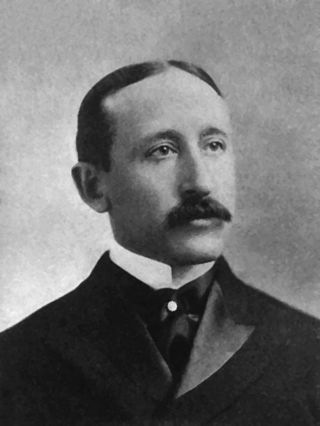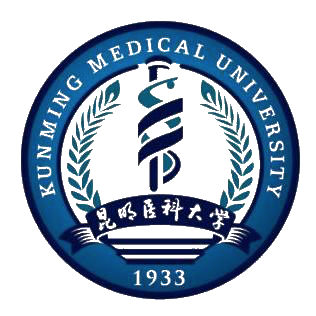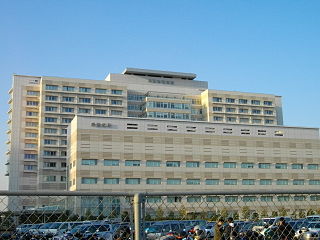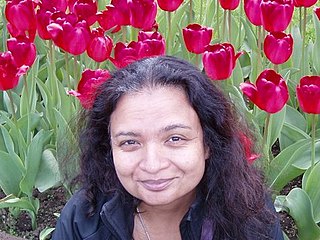The University of Texas Southwestern Medical Center is a public academic health science center in Dallas, Texas. With approximately 23,000 employees, more than 3,000 full-time faculty, and nearly 4 million outpatient visits per year, UT Southwestern is the largest medical school in the University of Texas System and the State of Texas.

Tianjin Medical University is a municipal public medical university in Tianjin, China. It is affiliated with the City of Tianjin, and co-funded by the Tianjin Municipal People's Government, the National Health Commission, and the Ministry of Education. The university is part of Project 211 and the Double First-Class Construction.

James Stephen Ewing was an American pathologist. He was the first Professor of pathology at Cornell University and discovered a form of bone cancer that was later named after him, Ewing sarcoma.
M. Krishnan Nair was an Indian oncologist. He was the founding director of the Regional Cancer Centre, Thiruvananthapuram, a director of the S.U.T. Institute of Oncology, and Trivandrum Cancer Center(TCC), part of SUT Royal Hospital in Thiruvananthapuram (Trivandrum) and a professor at the Amrita Institute of Medical Sciences & Research in Kochi. The Government of India awarded him the fourth highest civilian award of the Padma Shri in 2001 for his contributions in the cancer care field.

In 1916, the Daughters of Charity of Saint Vincent de Paul launched a Catholic hospital called St. Vincent's Medical Center Riverside. They provide full-service tertiary care at a capacity of 528 beds.

David Khayat is a French oncologist. Head of the Department of Medical Oncology at the Pitié-Salpêtrière Hospital since 1990, he is also Professor of oncology at the University Pierre and Marie Curie and adjunct Professor at the MD Anderson Cancer Center in Houston, Texas. He was elected at the American Society of Clinical Oncology board in 2013. Organiser of the World Summit against Cancer at the UNESCO, he initiated the Charter of Paris against Cancer and headed the French Cancer National Institute between April 2004 and September 2006. He is its Honorary President now. Professor Khayat is the founder and the President of the Foundation AVEC, a non-profit organisation declared of public utility since 2013 . He also became a consultant for various industries in the 2010s; in particular, he is paid by Philip Morris International for a lobbying activity in favor of heated tobacco product.

Uppsala University Hospital in Uppsala, Sweden, is a teaching hospital for the Uppsala University Faculty of Medicine and the Nursing School. Uppsala University Hospital is owned and operated by the Uppsala County Council in cooperation with the university and serves, together with Enköping hospital in Enköping, as the primary hospitals for Uppsala County. It also fills the function of a tertiary referral hospital for the Uppsala/Örebro health care region and, for certain specialities, a tertiary referral hospital for the entire country of Sweden.
Rakesh K. Jain is the Andrew Werk Cook Professor of Tumor Biology at Massachusetts General Hospital in the Harvard Medical School and director of the E.L. Steele Laboratories for Tumor Biology at the Massachusetts General Hospital.
James Lewis Abbruzzese is the Chief of the Duke Division of Medical Oncology and associate director for Clinical Research for the Duke Cancer Institute. Previously, Abbruzzese was Chairman of the Department of Gastrointestinal Medical Oncology at the University of Texas M. D. Anderson Cancer Center where he held the M. G. and Lillie A. Johnson Chair for Cancer Treatment and Research and the Annie Laurie Howard Research Distinguished Professorship. Abbruzzese is one of the world's leaders in the clinical study and treatment of pancreatic cancer.

Kunming Medical University, previously known as Kunming Medical College, is a medical school located in Kunming City, Yunnan Province, China.

The King Hussein Cancer Foundation (KHCF) and Center (KHCC) ,an independent Jordanian non-governmental, non-profit institution. It was established in 2001 by a royal decree issued and is led by Princess Ghida Talal. The Foundation's mission is to combat cancer through awareness, prevention, and early detection programs, providing comprehensive care for cancer patients from Jordan and the Arab world, in addition to promoting research and innovation.

Oncology is a branch of medicine that deals with the study, treatment, diagnosis, and prevention of cancer. A medical professional who practices oncology is an oncologist. The name's etymological origin is the Greek word ὄγκος (ónkos), meaning "tumor", "volume" or "mass". Oncology is concerned with:
Minesh P. Mehta is an American radiation oncologist and physician-scientist of Indian origin and Ugandan birth. He is currently deputy director and chief of radiation oncology at Miami Cancer Institute at Baptist Health South Florida.

The Japanese Foundation for Cancer Research (公益財団法人がん研究会) (JFCR) is a non-profit cancer research organization based in Ariake, Tokyo. The JFCR was founded in 1908 as the first Japanese organization specializing in cancer by Katsusaburō Yamagiwa and his supporters. The Cancer Institute and its attached hospital of JFCR were set up in 1934. The JFCR became a full member of the Union for International Cancer Control in 1968.
The Sidney Kimmel Comprehensive Cancer Center at Johns Hopkins University is an NCI-Designated Comprehensive Cancer Center in Baltimore, MD. It was established in 1973 and received its NCI designation that same year as one of the first designated cancer centers in the country.

Sun Yat-sen University Cancer Center, abbreviated as SYSUCC, is a public hospital in Guangzhou, China. It is affiliated with Sun Yat-sen University.

Hyen-taik Kimm was a Korean-Chinese physician that specialized in oncology. In China, he is remembered as the "Father of Chinese Oncology" for his many pioneering contributions to the field in the country as a researcher, educator, and practitioner. He was the first oncologist in China, created the first Chinese oncology journal, the Chinese Journal of Clinical Oncology, and the first Chinese oncologist organization, the Anti-Cancer Society of China.
Magnus von Knebel Doeberitz is a molecular oncologist and virologist, a professor of molecular oncology and medical director of the Department of Applied Tumor Biology at the Institute of Pathology at the University Hospital of Heidelberg. He also heads a Clinical Cooperation at the German Cancer Research Center.

Soma Sengupta is a British-American physician-scientist. She is a specialty board certified neuro-oncologist board certified Neurologist, fellowship-trained in Integrative Medicine. Her clinical interests span treatment of brain tumor patients, integrative approaches in neurology and oncology, as well as healthcare policy. She is a full-time faculty member in the Departments of Neurology and Neurosurgery at the University of North Carolina at Chapel Hill, where she is a Full Professor, Vice Chair, and Chief of the Division of Neuro-Oncology. She is also a Bye Fellow at Lucy Cavendish College, University of Cambridge, U.K.

Borg El Arab University Hospital is a teaching hospital One of Alexandria University Hospitals, its included on the first governmental center specialized in treating children cancer free of charge in Egypt. It was established in 2008 as a result of a cooperation concluded between the Egyptian and Dutch government as a university hospital It located in the central axis area in New Borg El Arab city in Alexandria Governorate, northern Egypt, on an area of 107 acres. The hospital provides its services mainly to residents of the governorates of Alexandria, Kafr El Sheikh, Beheira, and Matrouh.











